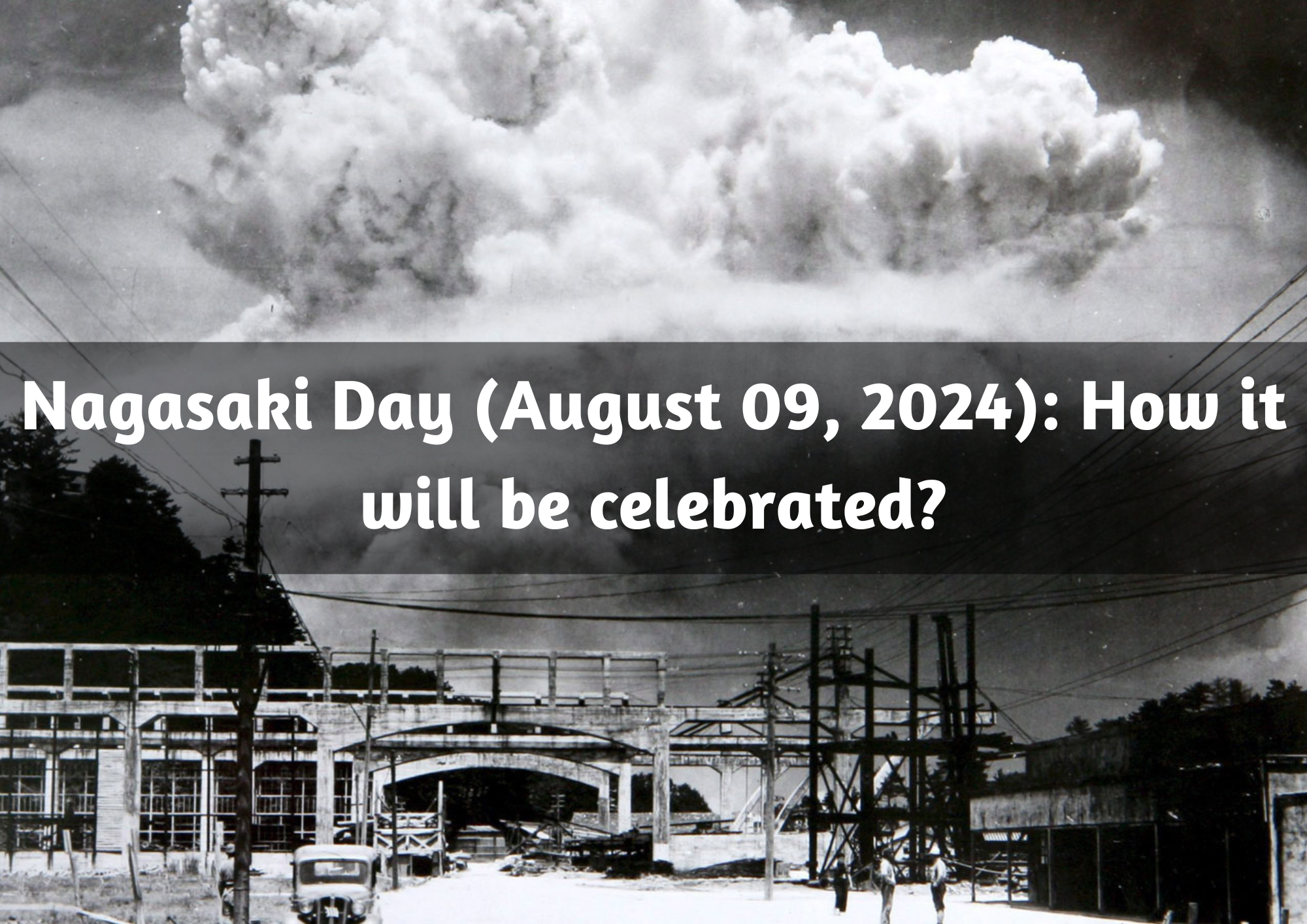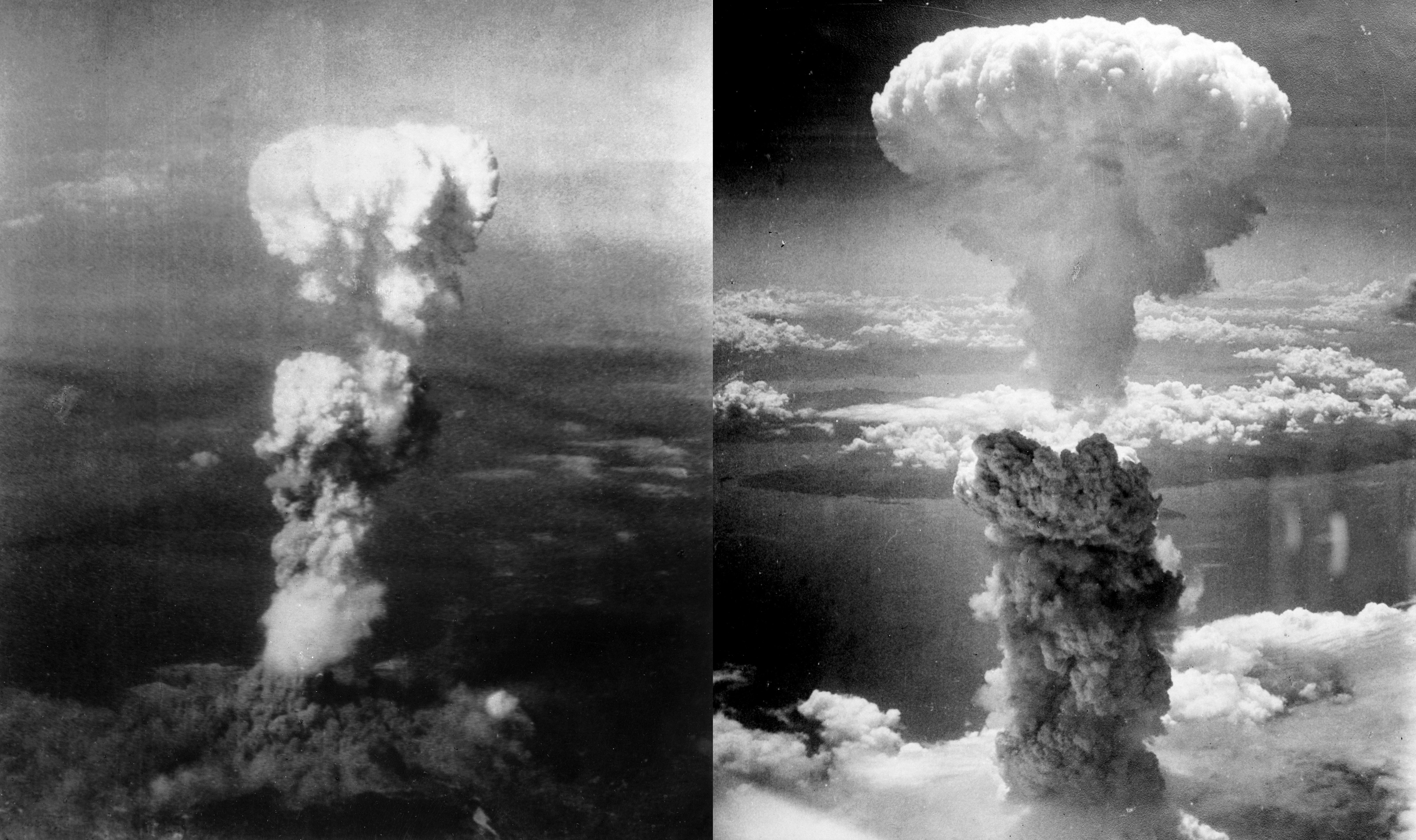
Nagasaki Day (August 09, 2024): How it will be celebrated?
Nagasaki Day, observed annually on August 9th, marks a somber moment in history, commemorating the atomic bombing of Nagasaki, Japan, in 1945. As one of the darkest chapters in human history, this day serves as a poignant reminder of the devastating consequences of nuclear warfare and the need for global peace. On August 9, 2024, people across the world will come together to honor the victims of the bombing, reflect on the horrors of war, and advocate for a world free of nuclear weapons. The 79th anniversary of this tragic event will be marked by various activities, events, and initiatives aimed at promoting peace, remembrance, and education.

Source: Wikipedia
Historical Background
On August 9, 1945, just three days after the atomic bombing of Hiroshima, the United States dropped a second atomic bomb on the city of Nagasaki. The bomb, known as “Fat Man,” caused extensive destruction and claimed an estimated 40,000 to 80,000 lives.The aftermath of the bombing left the city in ruins and inflicted long-term suffering on survivors, known as Hibakusha, who endured physical and psychological trauma.
Nagasaki Day not only commemorates the lives lost in the bombing but also serves as a stark reminder of the catastrophic impact of nuclear weapons. It is a day dedicated to promoting peace, nuclear disarmament, and global solidarity against the use of weapons of mass destruction.
Commemoration Activities in Nagasaki
In Nagasaki, the day will be marked by a series of solemn and reflective events that highlight the importance of peace and remembrance. The city, which has become a symbol of resilience and recovery, will host various activities to honor the memory of those who perished in the bombing.
1. Nagasaki Peace Ceremony
The focal point of Nagasaki Day observances will be the Nagasaki Peace Ceremony at Nagasaki Peace Park. The ceremony, attended by survivors, government officials, and peace activists from around the world, will feature moments of silence, speeches, and the release of doves as symbols of peace. The event will also include the reading of the Nagasaki Peace Declaration, a powerful call for the abolition of nuclear weapons and the promotion of global peace.
2. Bell of Nagasaki
At 11:02 AM, the exact time the bomb was dropped, the Bell of Nagasaki will toll, signaling a moment of silence across the city. This poignant gesture will be observed by residents, visitors, and participants in the peace ceremony, as they pause to remember the lives lost and reflect on the need for a world without nuclear weapons.
3. Floating Lantern Ceremony
As evening falls, the city will host a Floating Lantern Ceremony, where thousands of paper lanterns will be released into the rivers of Nagasaki. Each lantern will bear a message of peace, hope, and remembrance, creating a beautiful and moving spectacle. The ceremony, which is deeply rooted in Japanese tradition, symbolizes the souls of the departed finding peace and serves as a reminder of the enduring impact of the bombing.
4. Peace Concerts and Exhibitions
Throughout the day, Nagasaki will host various cultural events, including peace concerts, art exhibitions, and film screenings. These events will focus on themes of peace, resilience, and the human spirit’s ability to overcome adversity. The Nagasaki Atomic Bomb Museum will also hold special exhibitions and guided tours, offering visitors a deeper understanding of the events of 1945 and the city’s journey toward recovery and peace.
Global Observances and Initiatives
While Nagasaki Day is most prominently observed in Japan, it has also become a day of reflection and action for people around the world. In 2024, various international organizations, communities, and individuals will participate in activities and initiatives aimed at promoting peace and nuclear disarmament.
1. International Peace Conferences
Several international peace conferences will be held around the world to coincide with Nagasaki Day. These conferences, attended by diplomats, activists, scholars, and survivors, will focus on the ongoing efforts to achieve nuclear disarmament and prevent the proliferation of nuclear weapons. Discussions will address the current challenges and opportunities in the global disarmament movement and explore ways to build a more peaceful and secure world.
2. Educational Programs and Workshops
Educational institutions, non-governmental organizations, and community groups will organize workshops, lectures, and educational programs to raise awareness about the impact of nuclear weapons and the importance of peacebuilding. These programs will be aimed at students, educators, and the general public, providing them with the knowledge and tools to advocate for a world free of nuclear threats.
3. Virtual Commemorations
In the digital age, virtual commemorations have become an essential part of global observances. In 2024, many organizations will host online events, including webinars, virtual memorial services, and social media campaigns, to ensure that people worldwide can participate in Nagasaki Day activities. These virtual platforms will allow individuals to share messages of peace, engage in discussions about disarmament, and connect with others who are committed to promoting global peace.
4. Advocacy and Campaigns
Nagasaki Day will also see a surge in advocacy efforts and campaigns calling for nuclear disarmament. Organizations like the International Campaign to Abolish Nuclear Weapons (ICAN), the United Nations, and other peace groups will use this occasion to advocate for nuclear disarmament and urge governments to take decisive action. Petitions, letter-writing campaigns, and social media activism will play a crucial role in amplifying these messages and reaching a broader audience.
Nagasaki Day 2024 will be a day of remembrance, reflection, and action, as people around the world come together to honor the victims of the atomic bombing and to advocate for a future free of nuclear weapons. Through ceremonies, educational programs, advocacy efforts, and personal reflection, this day serves as a powerful reminder of the devastating consequences of war and the enduring importance of peace. As we observe Nagasaki Day, we are called to renew our commitment to building a world where such tragedies are never repeated and where peace and humanity prevail.




